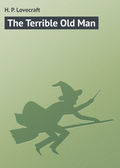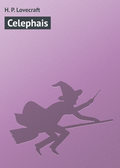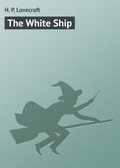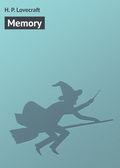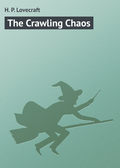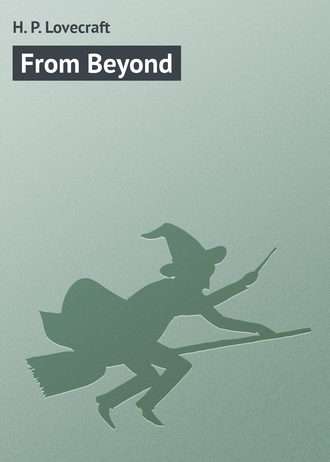
Говард Филлипс Лавкрафт
From Beyond
When Tillinghast said these things I remonstrated, for I knew him well enough to be frightened rather than amused; but he was a fanatic, and drove me from the house. Now he was no less a fanatic, but his desire to speak had conquered his resentment, and he had written me imperatively in a hand I could scarcely recognize. As I entered the abode of the friend so suddenly metamorphosed to a shivering gargoyle, I became infected with the terror which seemed stalking in all the shadows. The words and beliefs expressed ten weeks before seemed bodied forth in the darkness beyond the small circle of candle light, and I sickened at the hollow, altered voice of my host. I wished the servants were about, and did not like it when he said they had all left three days previously. It seemed strange that old Gregory, at least, should desert his master without telling as tried a friend as I. It was he who had given me all the information I had of Tillinghast after I was repulsed in rage.
Yet I soon subordinated all my fears to my growing curiosity and fascination. Just what Crawford Tillinghast now wished of me I could only guess, but that he had some stupendous secret or discovery to impart, I could not doubt. Before I had protested at his unnatural pryings into the unthinkable; now that he had evidently succeeded to some degree I almost shared his spirit, terrible though the cost of victory appeared. Up through the dark emptiness of the house I followed the bobbing candle in the hand of this shaking parody on man. The electricity seemed to be turned off, and when I asked my guide he said it was for a definite reason.
“It would be too much…I would not dare,” he continued to mutter. I especially noted his new habit of muttering, for it was not like him to talk to himself. We entered the laboratory in the attic, and I observed that detestable electrical machine, glowing with a sickly, sinister violet luminosity. It was connected with a powerful chemical battery, but seemed to be receiving no current; for I recalled that in its experimental stage it had sputtered and purred when in action. In reply to my question Tillinghast mumbled that this permanent glow was not electrical in any sense that I could understand.
He now seated me near the machine, so that it was on my right, and turned a switch somewhere below the crowning cluster of glass bulbs. The usual sputtering began, turned to a whine, and terminated in a drone so soft as to suggest a return to silence. Meanwhile the luminosity increased, waned again, then assumed a pale, outrè colour or blend of colours which I could neither place nor describe. Tillinghast had been watching me, and noted my puzzled expression.
“Do you know what that is?” he whispered, “That is ultra-violet.”He chuckled oddly at my surprise. “You thought ultra-violet was invisible, and so it is – but you can see that and many other invisible things now.
“Listen to me! The waves from that thing are waking a thousand sleeping senses in us; senses which we inherit from aeons of evolution from the state of detached electrons to the state of organic humanity. I have seen the truth, and I intend to show it to you. Do you wonder how it will seem? I will tell you.”Here Tillinghast seated himself directly opposite me, blowing out his candle and staring hideously into my eyes. “Your existing sense-organs – ears first, I think – will pick up many of the impressions, for they are closely connected with the dormant organs. Then there will be others. You have heard of the pineal gland? I laugh at the shallow endocrinologist, fellow-dupe and fellow-parvenu of the Freudian. That gland is the great sense organ of organs – I have found out. It is like sight in the end, and transmits visual pictures to the brain. If you are normal, that is the way you ought to get most of it…I mean get most of the evidence from beyond.”



